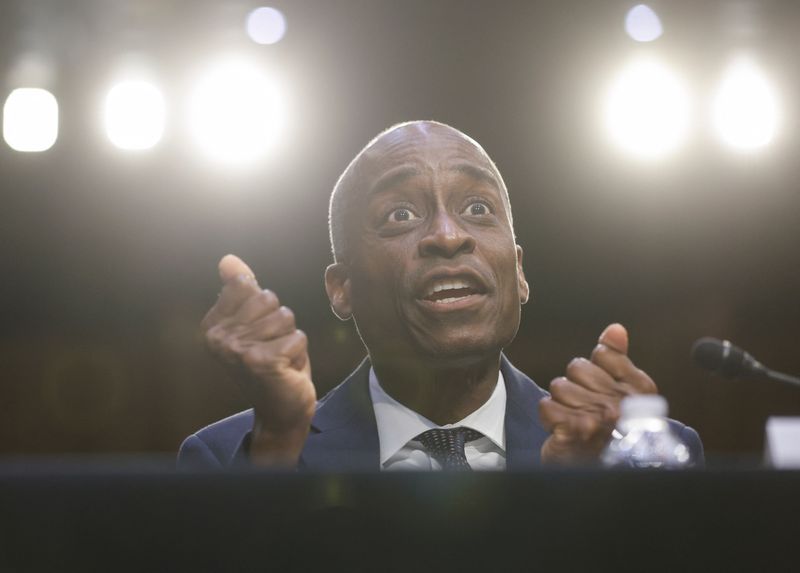By Moira Warburton and Ann Saphir
WASHINGTON (Reuters) -U.S. President Joe Biden's three Federal Reserve Board nominees, including his pick to fill the influential Fed vice chair post, advanced toward full Senate confirmation after winning backing from the Senate Banking Committee on Wednesday.
Lawmakers led by the panel's chair, Democrat Sherrod Brown, voted unanimously in support of elevating Philip Jefferson, a former economics professor appointed to the Fed just last year, to the central bank's No. 2 position.
The vote was 13 to 10, with Republican Mike Rounds joining all Democrats, in approving the nominations of World Bank economist Adriana Kugler to fill the only vacancy on the seven-seat Fed Board, and of Fed Governor Lisa Cook to a new term in that role.
The tallies at the committee suggest none of the nominees are likely to face fierce partisan opposition when their nominations are considered by the closely divided Senate.
Fed policymakers are locked in a battle with high inflation, and since last March have raised the key U.S. policy rate a full five percentage points to slow lending and investment so as to cool economic growth and persistently high post-pandemic price pressures.
A government report out earlier Wednesday offered fresh evidence the Fed's efforts are having the intended effect, with consumer prices rising just 3% last month from a year earlier.
All three nominees in a hearing last month pledged to take their cues from economic data as they do their utmost to bring down inflation without too much of an increase in the U.S. unemployment rate, now at a low 3.6%.

The nominations add a measure of diversity to the Fed Board whose members, along with the presidents of the 12 regional Fed banks, set borrowing costs for the world's biggest economy. Kugler would be the first-ever Latina to serve on the Fed in its more than 100-year history. Cook and Jefferson are Black.
"Because these nominees have all served the public during times of economic uncertainty, their judgment will add a unique perspective to the Board as they weigh in on how to make our bank systems resilient and not susceptible to future bank failures," Brown said.